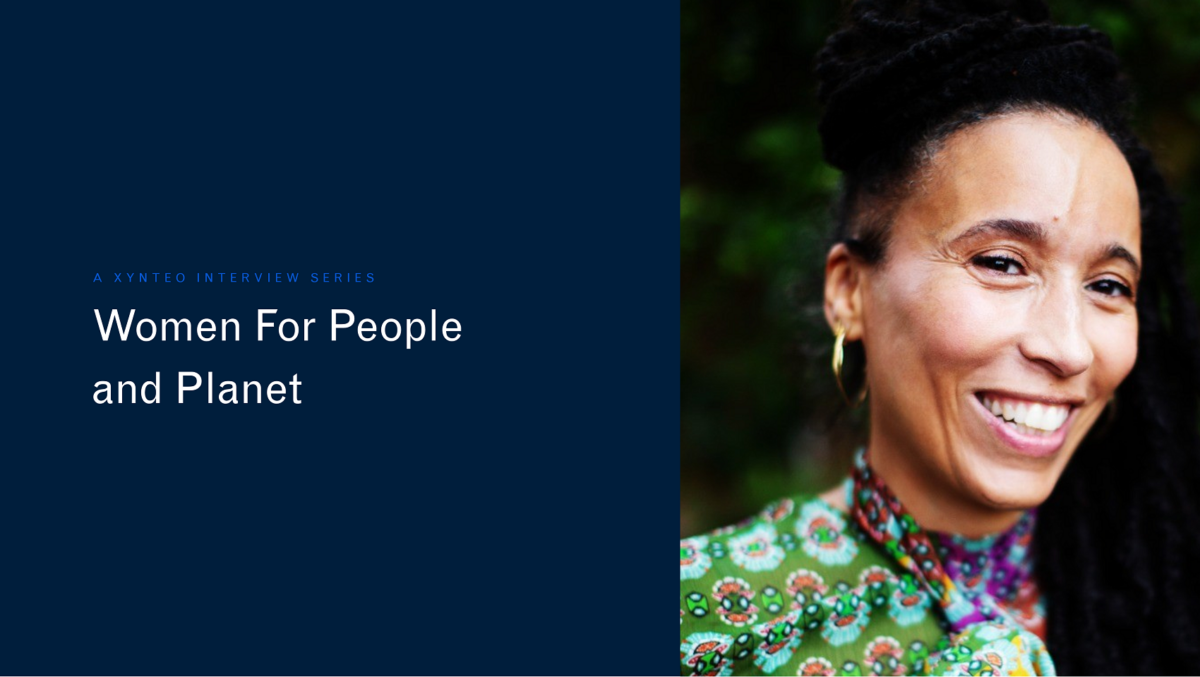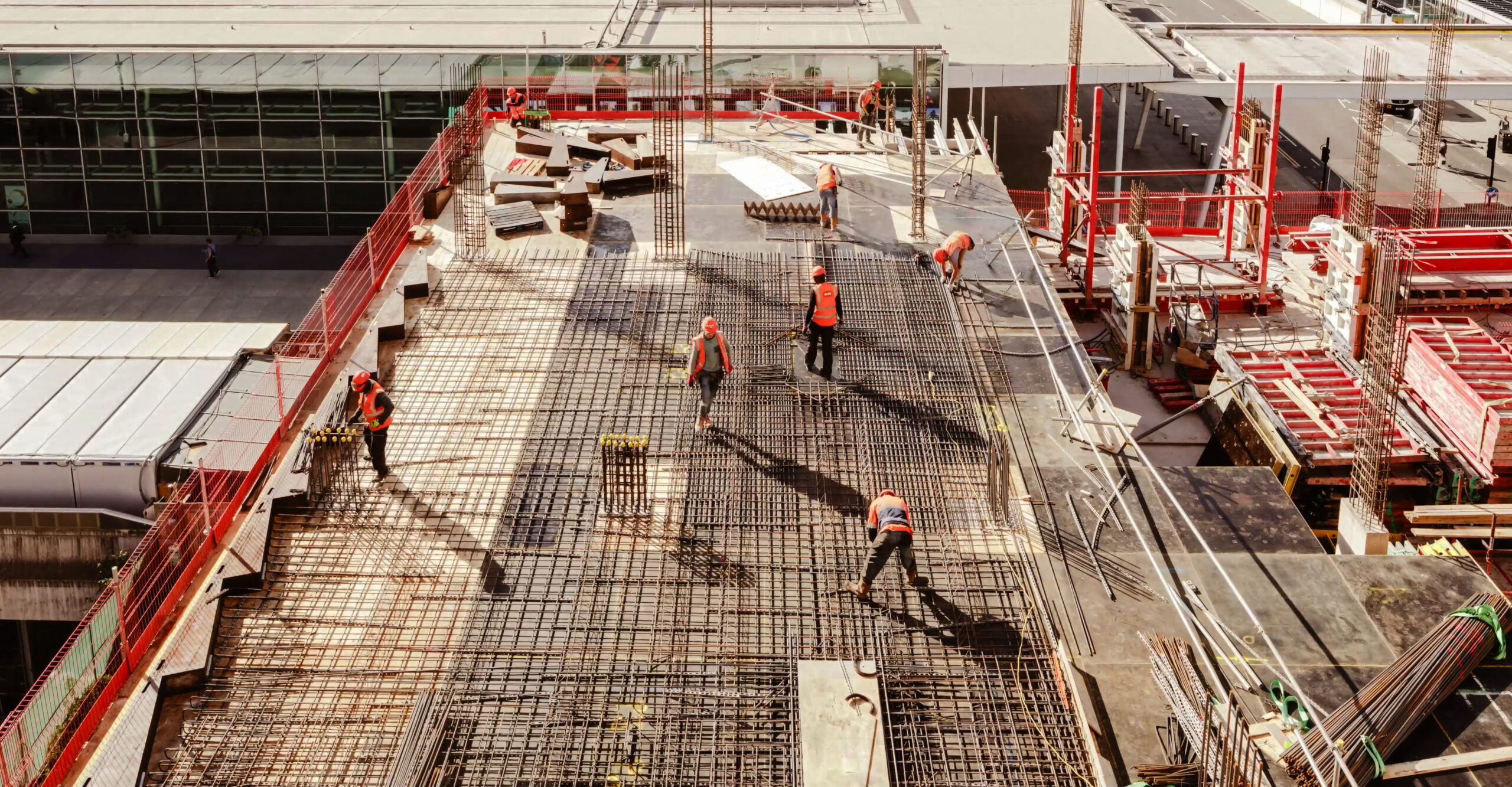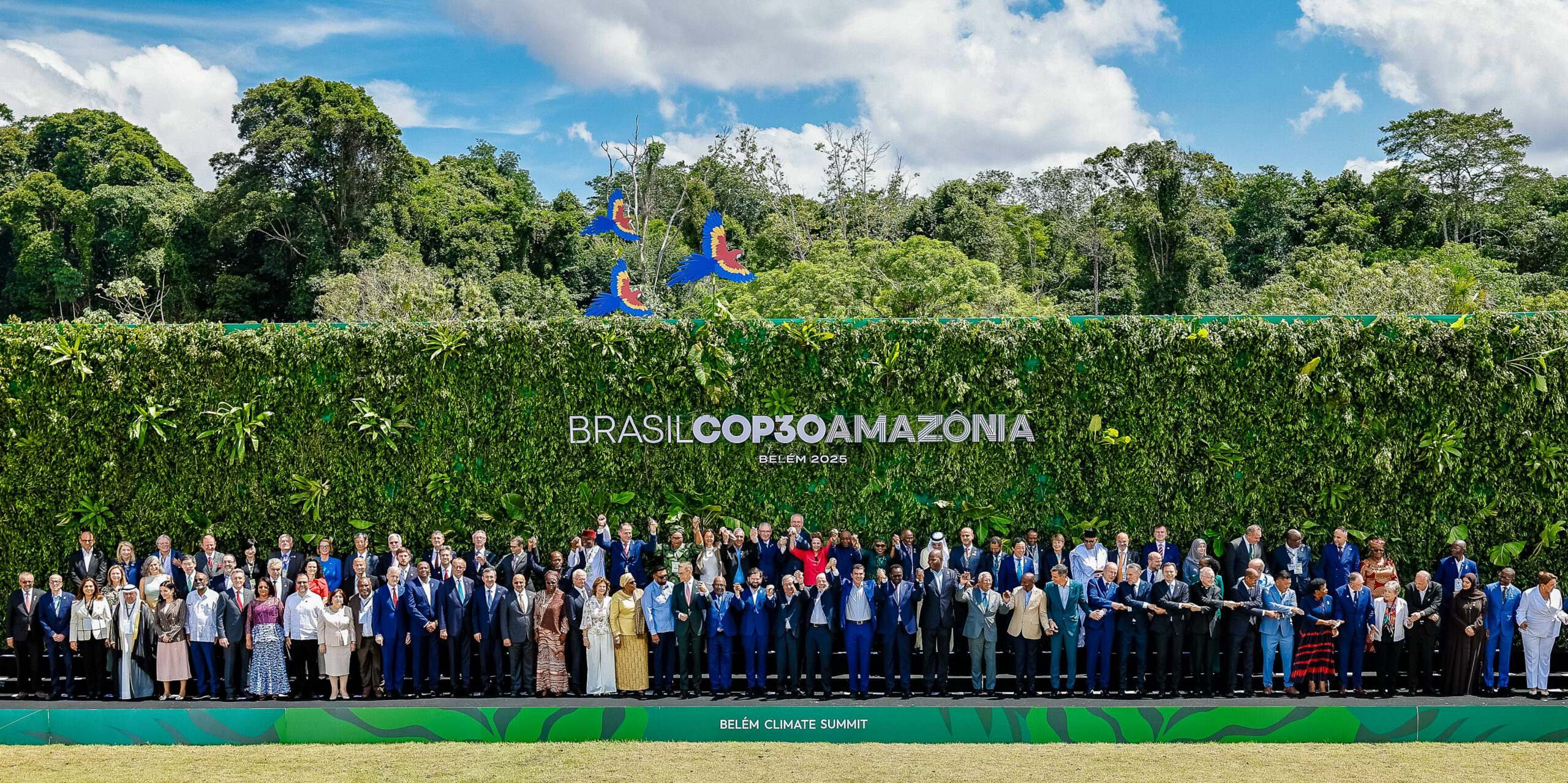As the daughter of a black South African man in exile and a white, working class Northern woman, who grew up at a time when interracial relationships were taboo, the personal was always political and social justice, as well as being proud of being a person of colour, have been integral to Louise Nkosi. Her journey then to becoming the CEO of MeWe360, which supports and promotes global majority entrepreneurs and leaders in the arts and creative industries, seems all but natural.
Xynteo’s Winnie Ogwang sat down with Louise to talk about her journey, what she has learnt, and how she sees the future of sustainability.
What does your personal journey towards sustainability look like?
Louise: I suppose to start from the very beginning, I was always going to be working in the space I’m in because of where I’ve come from. My dad was a Black South African writer in exile who met my white Northern working class mum at a time when interracial relationships were taboo. Being a child of an exile, growing up in Britain when racism was very stark meant that the ‘personal being political’ felt very real to me. One of my strongest memories as a little girl, is looking out of my window, from high up in my block of flats, at the city landscape, and feeling so excited about this big world waiting for me and all the adventures I was going to have in it. But then growing up, you can feel that world shrinking as the opportunities aren’t so readily available, especially if you are from a particular background. And so that excitement, that sense of wonder and possibility can diminish. And I suppose at MeWe360, we are fighting against that diminishment. And part of what has given me the energy and inspiration to be part of this fight are the role models I grew up around (my parents, godmother and extended community). They were all involved in social activism in their own way. I, in large part, escaped the sense of shame that can sometimes be part of the experience of growing up in a world where you are marginalised. I gained strength, joy and pride I got from seeing and being around the work that my dad and godmother were involved in, telling the stories of black and brown communities through writing and film. And now, working at MeWe with entrepreneurs within the arts and creative industries, I am energised and grateful to be able to contribute to the enablement of our communities to keep telling our stories and towards a world where everyone gets to think big, to thrive and fulfil their ambitions.
So, I would say that where I came from and how I grew up is at the core of why I’m here.
I became CEO of MeWe360 in June last year having worked and helped shape MeWe360 since its beginning. I’m really excited to have the space to draw on my experience and ideas to create the next chapter for MeWe. But it’s interesting, I’ve noticed that there is perhaps a vulnerability as a woman stepping into this role to claim the title and the visibility that comes with it.
What opportunities have been the most important to making progress in your sustainability journey?
Louise: Personally, it would be the people that I’ve had the opportunity to meet and who have offered me their support and guidance. That’s been incredibly important. And also, the team members I have been able to work alongside that have supported me when I’ve been in different types of leadership positions within this organisation. Having their support and their energy and skills alongside me in helping me to fulfil my own potential as a leader has been valuable.
And from an organisation perspective, I would say that again many of the opportunities have been about the people that have come our way and contributed to MeWe360—we’ve had some incredible people who believed in us, contributed as mentors, opened doors by introducing us to other organisations and funders, and really advocated for us. Besides that, a significant opportunity for us right now is that we are an NPO (National Portfolio Organisation) for the Arts Council. So that gives us three years at a time of core funding. That kind of funding is a help in getting you off the treadmill of having to go for short-term project funding, which takes up a lot of energy and can distract you from the larger task of fulfilling your mission. It gives us the space and the opportunity to pilot new ideas and keep working towards our sustainability.
What are the skills and experiences that you’ve valued the most on this journey and how they have equipped you best.
Louise: One of the important things for me in this leadership role and what has supported my development is the importance of learning its ok to be myself. Before MeWe360, I was working with music, education, young people in the community and helping lead on racial and social justice. Then at MeWe360, I was in this building with venture capitalists, interacting with corporates —quite alien to the environments I was used to operating in.
But I’ve learned it’s not just okay to be me, it’s essential to bring my way of speaking and working and not try some different language or lead as others do.
Also, I’ve learnt not to put people in boxes—I probably had some unhelpful prejudices about these different environments that made me a little wary at times. But I’ve learnt so much from being exposed to other worlds as there is much that connects us and there can be a lot of generosity from individuals in different spaces.
One of the most valuable skills for me, is being able to know when to ask for help and bring people in, and not feeling I must know and do everything myself. On the other hand, the ability to take a leap, give something a try even if it terrifies you has also been an important part of my journey. I’ve learnt to let go of some of the perfectionism I used to have. Another important skill I always admire when I see it in others – and one that I’m trying to continually get better at – is to remain curious, to really listen and reflect rather than too quickly react to confrontational circumstances and people. But it’s not always easy!
The importance of the team has been huge for me at MeWe360. It’s about building the trust so that there is a good balance between flexibility and accountability, creating an environment where we can say bring our whole selves to work. We are not machines; we can have good and bad days. It’s about empowering the team to meaningfully contribute their ideas and thoughts on what we should be doing and to keep growing and learning.
The importance of the team has been huge for me at MeWe360. It’s about building the trust so we can say what’s going on for ourselves— it’s about empowering the team to meaningfully contribute their ideas and thoughts on what we should be doing and to keep growing and learning.
What barriers have you faced?
Louise: With this work in racial equity, a constant barrier is that it’s a case of when we’re the “flavour of the month” or not when it comes to racial issues being a focus. And that is problematic, because as a Black organisation, we can be dropped very quickly by external funders when race is no longer a priority which isn’t sustainable. An example of this is the collective sense of injustice for George Floyd and the unprecedented support for the Black Lives Matter movement which suddenly put racial equity on the agenda for many institutions. But that window closed much quicker than we’d hoped, with the backlash against “wokeism.” and consequent reversal of opportunities in some cases such as the government is now telling councils to cut diversity programmes. So, we’re in this tricky time again having to justify why we need funding. This barrier I’m describing is something that MeWe has always been acutely aware of and is trying to change partly through empowering our communities by building more black autonomy and self-reliance and re-shaping the system.
The feeling of scarcity, of dependency and fragility can affect black organisations on multiple levels. In the early days, we’d almost have different scripts for our members/community versus investors because of what we felt we could say to each. That’s hard when trying to build an authentic organisation.
Another barrier is the lack of patience from funders wanting to see big, shiny results quickly. What we’re trying to do involves addressing long, entrenched, complex issues—solutions will take time and progress is sometimes subtle. You also need room to fail sometimes when you’re taking risks and learning as you go. Things won’t always work right away—that’s part of the process. But Black organisations especially don’t often get that luxury of being able to fail.
What has been your proudest moment?
Louise: It’s whenever I meet a member and they say that MeWe360 has helped them in some way. That we connect with them, and they feel the support of MeWe360—it’s those stories. They’re not necessarily the headlines but they are people who felt we were there for them, and we helped them to survive and thrive through a stage in their journey that may be a high of success or low one of failure – both are of equal value. It’s about knowing that we are doing our bit in sustaining the enormous talent that we are privileged to meet and work with; that we can contribute to these people having sustainable leadership careers, leading robust impactful enterprises makes me enormously proud.
How do you see the future of the CSO role / sustainability teams in the board room?
Louise: Well, having talked about how tenuous the support for racial equity can feel from the wider society, I’m grateful that the people in our boardroom genuinely believe in racial equity, as we really need those people to hold their nerve and drive forward this agenda. And our Board members not only help keep us focussed, they are also advocates for us and help us to represent the needs and challenges of our members. To be sustainable I see the Board supporting MeWe to become more ambitious and innovative – empowering black and brown enterprises to lead by example and growing in influence to help shape the wider society. This will happen organically, building relationships with new partners to become more trusted and visible in new areas. And together we can find many ways to raise awareness on the blockages and constraints that hinder us all from succeeding. We are really open to collaborate with others to navigate those constraints, because together we can be a little bit more inventive and think outside the box.
So, for us, sustainability is building the foundation on which we can be more solid and secure for our members and for ourselves. We have a greater ambition and drive for innovation and being more seen to shape the wider society, which will be very much aligned to our social and environmental impact. I think that communication and being willing to engage across the sectors is really important as well as all of us holding our nerve – our funders included. The commitment to racial justice can’t be a passing fad. We all need to keep driving forward, with a long-term commitment and investment to bring about sustainable change.
To be inspired by all our latest interviews, visit our Women for People and Planet interview hub.
Stay up to date with our latest interviews by following us on social media (LinkedIn I Twitter), or Contact Us to find out how we can help your leaders and organisation create people and planet-positive impact.



